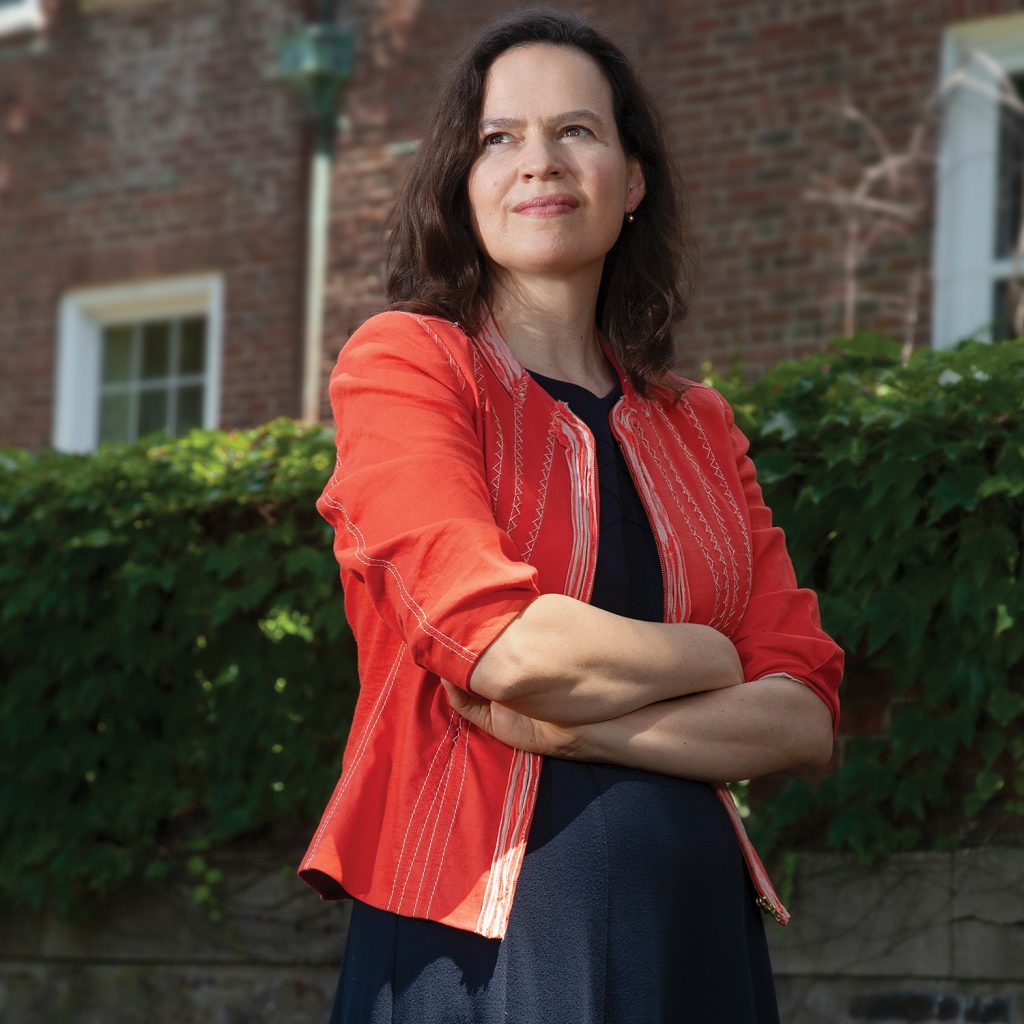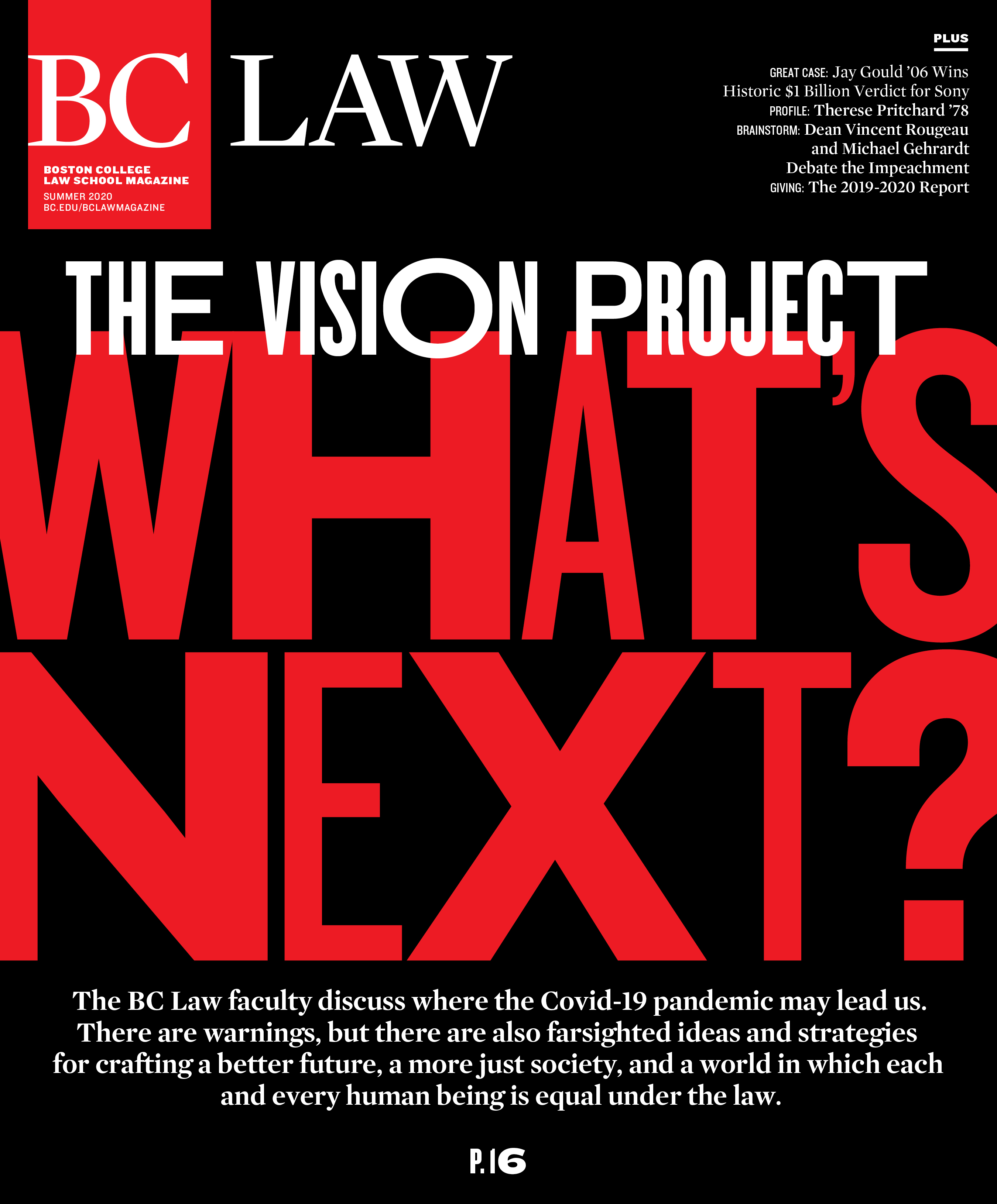Nobel Laureate Amartya Sen called Young’s first book, Constituting Economic and Social Rights (Oxford, 2012), “a brilliant discussion of great importance to policy-making.” In addition to four books, she has published research in the relatively new field of economic and social rights in many scholarly journals.
Do you see a correlation between countries that have done best in fighting the virus and shielding citizens from the economic fallout and those whose laws grant social and economic rights, including the right to health care, a living wage, and other necessities of life? To answer your question requires an analysis of social movements, legal culture, and the courts, as well as the legacies and institutions of welfare provision and market regulation.
As to the economic fallout, there’s a big story yet to be written. The massive rate of joblessness, for example, poses questions about the prudence of the link between having a job and having health insurance—a link that exists in the United States but not in other industrialized democracies. In the US, the right to health care is deeply controversial. Economic and social rights provide a language to challenge this paradigm and move this aspect of the US closer to other states whose systems are premised on protecting their citizens from risk, and on guaranteeing human dignity.
A social/economic right that’s accorded to citizens of some countries is the right to safe and decent housing. What has the pandemic shown us about the housing situations of less-affluent Americans? In 2009, the UN Special Rapporteur on the right to adequate housing visited the US and reported on alarming conditions, including significant cuts in federal funding for low-income housing, the persistent impact of discrimination in housing, substandard conditions such as overcrowding and health risks, and severe consequences of the foreclosure crisis, including evictions and homelessness. So, the pandemic has lifted the curtain on what was already a worrying problem. For example, cramped housing conditions have fueled community spread of the coronavirus, and many workers deemed essential live in substandard housing, exposing them and their families to health risks at a time when the rest of us need them most of all. The pandemic has shown that a right to safe and decent housing would benefit all Americans.
Will the risks being run by workers in manufacturing, health care, and other fields, plus increased attention to the difficulty of their work, increase public support for expanded workers’ rights in the United States? The havoc wrought by Covid-19 is enormous and unprecedented. I see it as a switch point or a crossroads—much like other great calamities, such as the Great Depression and World War II.
But I have a hard time predicting where we will end up. Could Covid be exploited for anti-rights moves? Certainly. In the US, a lot depends on the election, and the realignment of party positions before and after it. Yet conditions are ripe to see a massive renewal of public support for the rights to housing, health care, and social security, including a living wage and perhaps a universal basic income or other institutional form of social protection against economic risk.
Perhaps we’ll see a boost to the decarceration movement, given the rapid spread of the virus in prisons and immigration detention. After this experience, I’d imagine that the US would need a larger justification for locking people up and exposing them to these risks, particularly given its notable outlier status on this issue, and particularly given the disparate harm that falls on people of color. This is also a focal point for the protests that we are now seeing.
I could also mention other economic and social rights. During the pandemic, we have seen great problems in food insecurity amongst Americans, with food shortages, long lines at food banks, the hunger of school children and families, at the same time as images of farmers dumping milk and euthanizing pigs and chickens. Although rights to food, as well as to water, sanitation and a healthy environment, are not as prevalent in constitutions and legislation as other economic and social rights, there are certainly growing and networked mobilizations behind them, and even supportive case law, which have been premised on the argument that they are essential for human life and dignity.
What is the most hopeful lesson you see coming out of the pandemic? There may be a moment of social learning taking place, with the realization that none of our rights can be guaranteed when the rights of the least vulnerable are not secured.
How would life look different if American law had stronger and more explicit protections for social and economic rights? Written laws can’t protect us by themselves. We also need a deep-seated cultural commitment to economic and social rights. If we had that, things would be very different indeed. With due protections for economic and social rights, and to the demands of moral equality and racial justice so desperately being expressed at this very moment, life in America might look like a life of greater freedom and dignity.
To read other pieces in this issue’s The Vision Project, click here.



